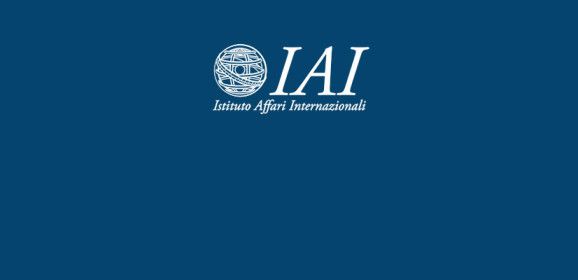Section: Istituto Affari Internazionali (Italy)
Iran e Europa: una conversazione con il Ministro degli Affari Esteri iraniano, Hossein Amir-Abdollahian
On July 12, 2022 at IAI, a group of experts participated in a conversation with the Minister of Foreign Affairs of the Islamic Republic of Iran, Hossein Amir-Abdollahian, in a closed-door meeting moderated by Director Nathalie Tocci. The conversation focused on the future of EU-Iran relations in light of JCPOA negotiations – with an emphasis on...
European Defence: Time to Act
The Russian invasion of Ukraine on 24 February 2022 has renewed momentum on the long-standing debate on EU defence, convincing many that the time for concrete steps to meet this ambition – the building of a united European defence grounded in its own strategic and technological autonomy – has finally come. …read more Source:: Istituto...
NATO’s New Strategic Concept: Novelties and Priorities
NATO’s new Strategic Concept provides a clear set of guidelines for the Alliance in a mid-term perspective. Adopted on 29 June in Madrid, the Concept outlines a number of priorities stemming from Russia’s war on Ukraine, but also puts forward relevant novelties concerning China and the Indo-Pacific. …read more Source:: Istituto...
Can the West Afford to Let the World Go Hungry?
While economic interdependencies do not prevent war, witnessed most recently by Russia’s naked war of conquest in Ukraine, the costs of war in a globalised world spread far and wide. Russia has taken the world’s food markets hostage by blockading Ukrainian ports in the Black Sea. The resulting food price increases make a humanitarian...
The European Union’s Quest for Strategic Autonomy in the Western Balkans: Political and Economic Perspectives
The future of Europe and of EU enlargement are high on the agenda. They will be discussed on 23-24 June 2022, first at the European Council then at the EU-Western Balkans high-level conference organised under the auspices of the French Presidency of the Council of the European Union. EU leaders will be called upon to take far-reaching decisions...
Promoting Energy Transition and Food Security: The Role of the G7 under Germany’s Presidency
The Covid-19 crisis and the war in Ukraine added further pressures on the current rule-based multilateral order and its capacity to deal with emerging global challenges. The German G7 Presidency faces the opportunity to tackle key issues of multilateral cooperation at unprecedented turbulent times. Surging energy and food prices are especially...
Pensiero globale, azione locale: da Torino uno sguardo sulla governance globale dopo la guerra all’Ucraina
The Russian aggression in Ukraine called for an unprecedented response in Europe. Meanwhile, the political, economic and social challenges posed by the pandemic have shown the need for negotiated and internationally shared solutions. Looking beyond the emergency posed by the pandemic, systemic challenges such as the fight against climate change...
Legislation as a Tool for Expanding the Power of the State and Limiting Political and Civil Rights in Modern Russia
The whole world is now witnessing what Russian lawmaking of previous years has led to. The aggression against Ukraine is a direct consequence of the suppression of any dissent in Russia, formalised by the parliament as laws. Russian legislators – who got into parliament as a result of not only electoral fraud, but also laws that place insuperable...
Reconciling EU Energy Security with Climate Policies: Rethinking European Gas Markets
In response to Putin’s invasion of Ukraine and the global energy crisis that worsened in its wake, the EU has decided to end its dependence on Russian fossil fuels while firmly reinvigorating its climate leadership. European policymakers, alongside the private sector, are struggling with the complexity of energy systems and governance,...
Why Ukraine (and Moldova) Must Become EU Candidates
In the fourth month of war, European support for Ukraine risks sagging. This includes dropping the ball on Ukraine’s EU membership. Denying candidacy (or offering empty alternatives of potential candidacy) would represent a symbolic debacle for Ukraine and for the EU, and a stunning symbolic win for Putin. Alongside the recognition of full...


